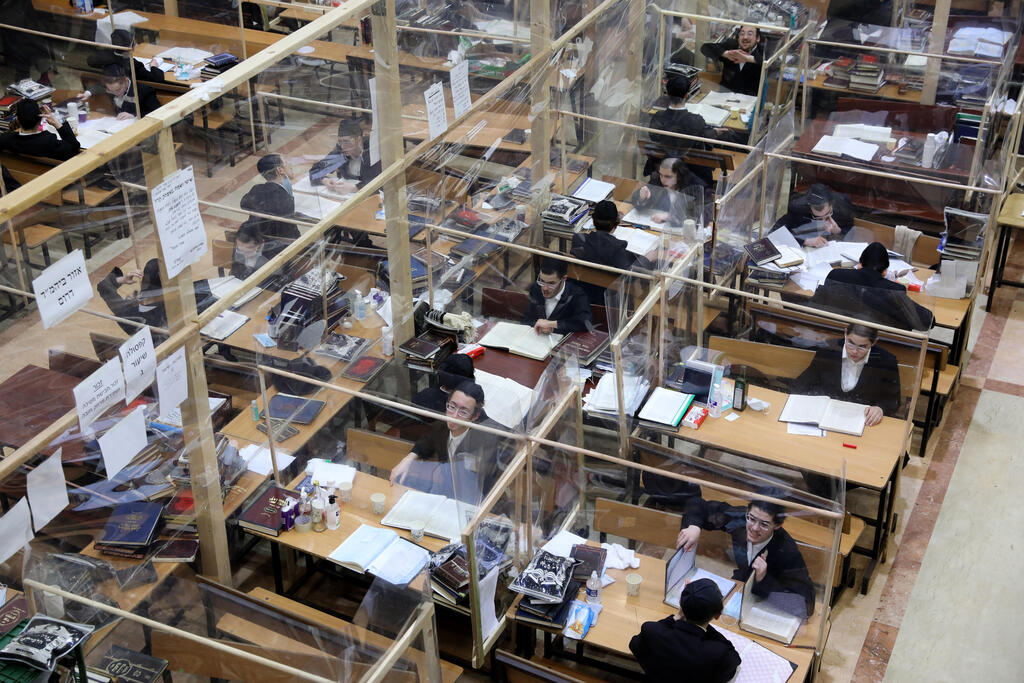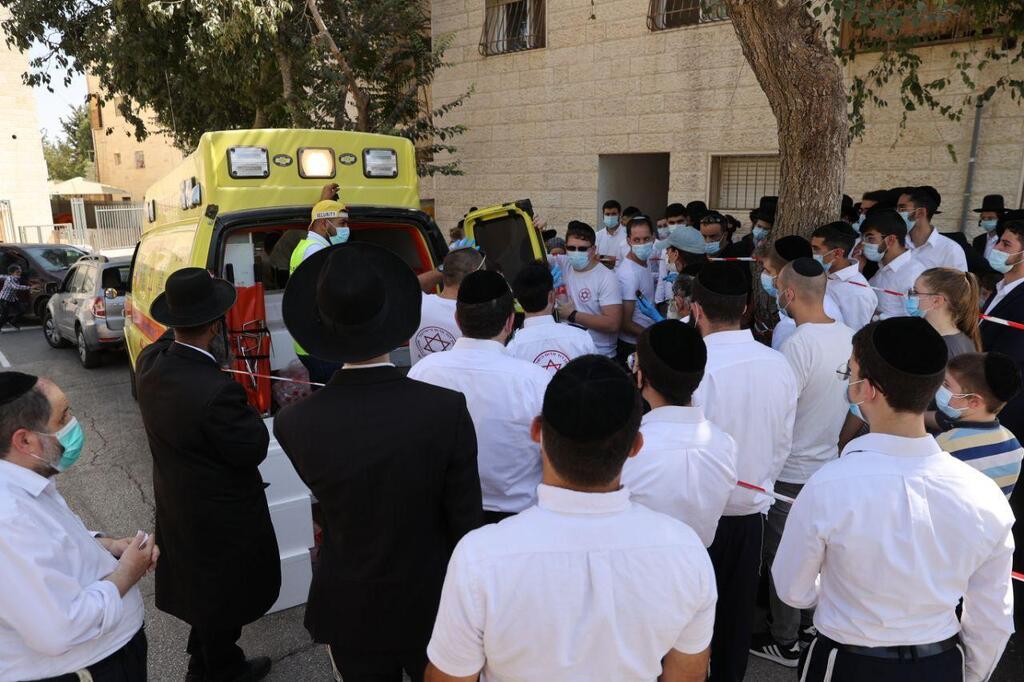Unlike the 26,000 yeshiva students who took part in the now defunct plan for capsule learning, under the supervision of the government and the Council of Yeshivas, there are thousands of students in Israel who have studied in institutions that did not participate in the capsule outline, in violation of the law.
Unlike in their counterparts who operated a capsule system under the auspices of the government and Council of the Yeshivas, the infection rate in these institutions is currently unknown, as is the number of coronavirus tests actually conducted in them.
Now, with the return of these yeshiva students to their homes, Haredi medical officials define this huge group as a "ticking bomb" and warn of a "catastrophe" immediately after the Jewish holiday of Sukkot, which ends on October 9.
2 View gallery


Yeshiva students in Bnei Brak observing government-approved social distancing guidelines
(Photo: EPA)
Israel’s own health system sees as its greatest threat the 16,000 yeshiva students who came from institutions that were excluded from the capsule outline usually because the conditions did not allow it.
In the absence of enforcement, these yeshivas have operated in recent weeks unhindered and without any supervision by the state or the Council of Yeshivas.
And since these studies went “under the radar,” no coronavirus testing has been conducted in these yeshivas, at least not in any official capacity, thus the infection rate in these institutions remains unknown.
2 View gallery


Yeshiva students gather around a Magen David Adom mobile coronavirus testing unit in Jerusalem
(Photo: Alex Kolomoisky)
Ahead of Yom Kippur, government officials asked the ultra-Orthodox communities not to turn a blind eye to the phenomenon of under the radar yeshivas, and to monitor the return of the thousands of their students to their overcrowded communities.
It was too little, too late.
Prime Minister Benjamin Netanyahu held a phone consultation on the matter with Health Minister Yuli Edelstein and the ultra-Orthodox sector’s coronavirus expert on the eve of Yom Kippur, a mere day before the students were released home.
A decision to test these students before their return home was made too late: when the testing kits arrived at the yeshivas, the students were already at home and preparing for Sukkot.
But given the extreme overcrowding in the homes of the ultra-Orthodox community, especially during the High Holidays, there are fears that another outbreak will get out of hand among the Haredi community.

